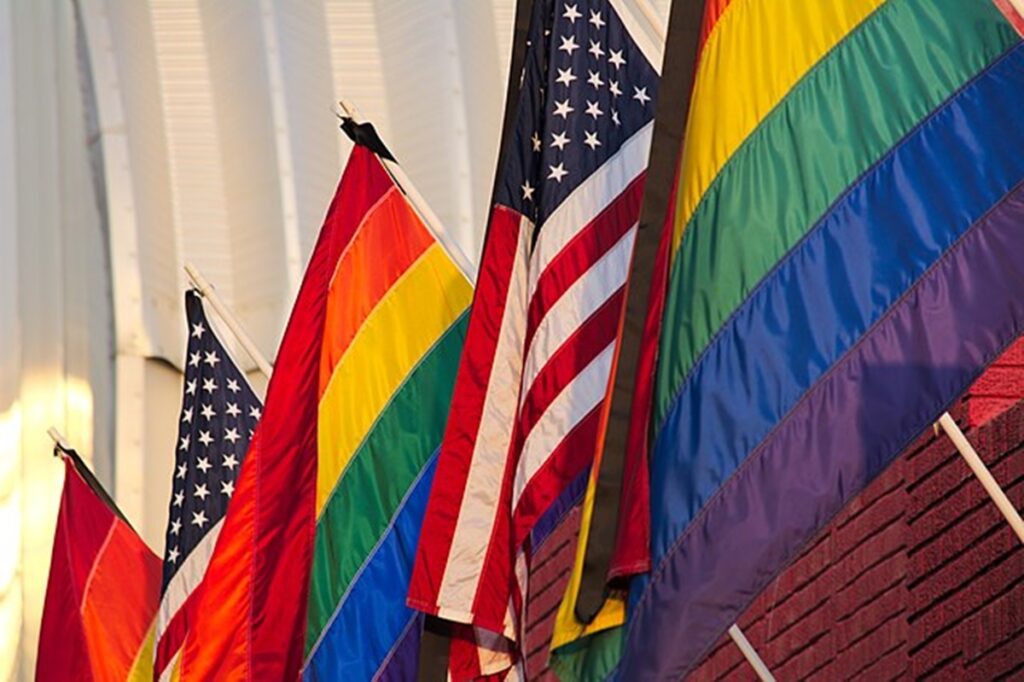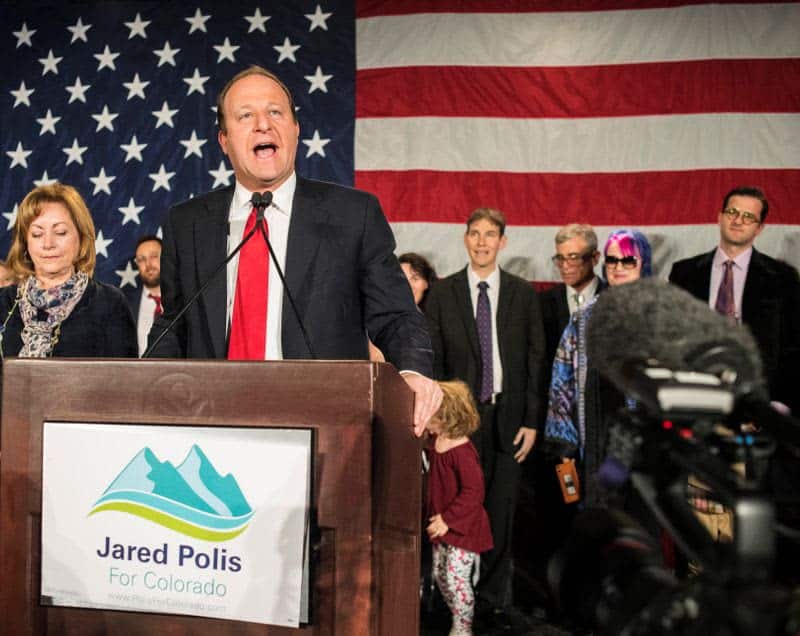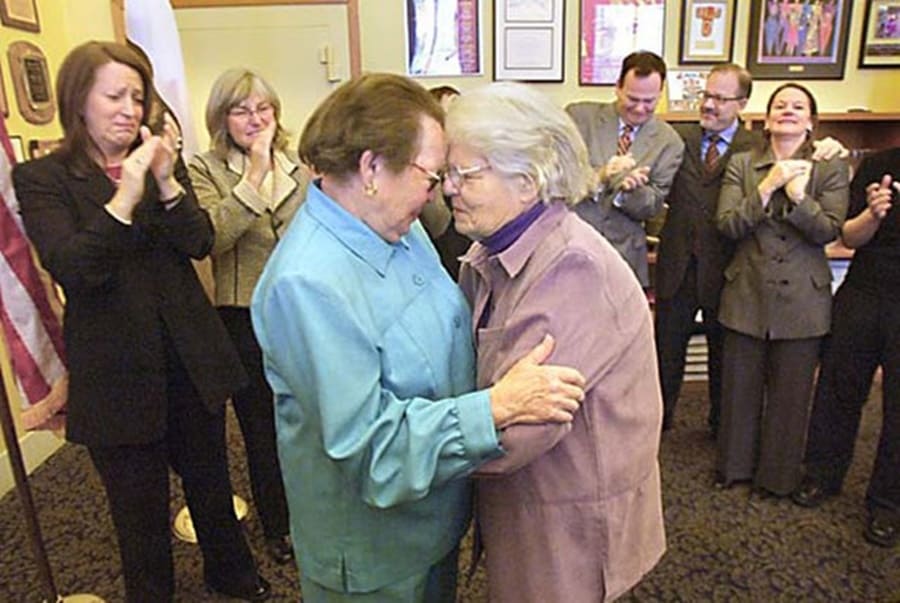

“Lawless” Rulings
Jonathan Mitchell, the architect of the controversial Texas abortion ban, now appears to be setting milestone LGBTQ rights, including gay marriage, enshrined by the U.S. Supreme Court as his next target.
In a brief filed by Mitchell and coauthor Adam Mortara for a Supreme Court case involving a restrictive abortion law in Mississippi, the Texas lawyer claims that rulings in Lawrence v. Texas and Obergefell v. Hodges “are as lawless as” the Roe v. Wade ruling that legalized abortion in 1973.
Deeming the protections these rulings guaranteed as “court-invented rights to homosexual behavior and same-sex marriage” and “judicial concoctions” and “less hazardous to human life” than Roe, Mitchell and Mortata argue that “there is no other source of law that can be invoked to salvage their existence.”
The rulings questioned by the lawyers’ brief have been celebrated as major legal victories for LGBTQ communities. Lawrence v. Texas invalidated antisodomy laws used by states to police LGBTQ sexual activity and identites and Obergefell v. Hodges legalized same-sex marriage nationwide.
Neither should the Court hesitate to write an opinion that leaves those decision hanging by a thread.
Jonathan Mitchell, Adam mortara
The brief takes special aim at the Obergefell decision, claiming that its basis in the “fundamental right to marry” isn’t applicable because the right to marry a same-sex spouse isn’t “deeply rooted in this Nation’s history and tradition.”
“Otherwise long-prohibited conduct can be made into a “fundamental right” that is “deeply rooted in this Nation’s history and tradition,” so long as a litigant is creative enough to define the “right” at a high enough level of abstraction,” the brief argues. “The right to marry an opposite-sex spouse is “deeply rooted in this Nation’s history and tradition”; the right to marry a same-sex spouse obviously is not.”
It concludes by stating that the Supreme Court shouldn’t necessarily “announce the overruling of Lawrence and Obergefell if it decides to overrule Roe,” but that it shouldn’t “hesitate to write an opinion that leaves those decisions hanging by a thread.”
A Dangerous Pattern
The feelings expressed in the brief are concerning, especially given the conservative lean of the Supreme Court following the appointment of Justices Neil Gorsuch, Brett Cavanaugh and Amy Coney Barrett during the Trump administration. Despite there being no case currently circulating challenging to overturn either ruling, signaling them as a legal target has placed LGBTQ advocates on alert.
The opinions argued also come with little surprise given Mitchell and Mortara’s connections to previous attempts to undermine the rights of marginalized communities. Mitchell, a former Texas Solicitor General, clerked for Justice Clarence Thomas, one of the most conservative voices on the Supreme Court. Thomas, along with Justice Samuel Alito, have previously expressed a desire to see the Obergefell decision reversed.
Texas has shown that states need to adopt a posture of learned helplessness
Jonathan Mitchell
Mitchell helped craft the recent Texas abortion ban, which empowers private citizens to sue, and effectively police, anyone who helps a pregnant person get an abortion after “about six weeks” into the preganancy. His law firm has also worked with the Alliane Defending Freedom, an anti-LGBTQ legal organization that has spearheaded numerous legal challenges to the basic rights of LGBTQ people.
Mitchell has been brashly open about constructing the Texas abortion ban in a way that makes it difficult to challenge the legal sytem, effectively circumventing the judicial process in an effort to stall pro-choice advocacy groups. A New York Times profile of Mitchell cited a 2018 paper written by Mitchell that described the strategy.
“The politcal branches have been too willing to cede control of constitutional interpretation to the federal judiciary, Mitchell wrote. “But there are ways to counter the judiciary’s constitutional pronouncement, and Texas has shown that the states need to adopt a posture of learned helplessness in response to questionable or unconstitutional court rulings.”
In the same brief, Mitchell claimed that people who can get pregnant could avoid unwanted prenancies by abstaining from sex or traveling to “welathy pro-abortion” states using “taxpayer subsidies.”
Mortara also clerked for Thomas and, like Mitchell, has ties to the Federalist Society, another staunchly conservative legal organization that has supported attacks on reproductive and LGBTQ rights.
Gay Marriage: Previously on Towleroad
Photo courtesy of Enrique Jiménez/Creative Commons







Recommended Comments
There are no comments to display.